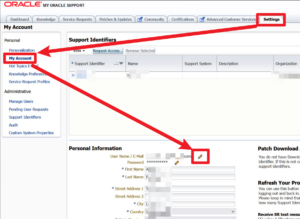本文同样适用于 Debian 10 Buster 和 Debian 9 Strech。
由于某些软件并没有增加开启启动的服务,很多时候需要手工添加,一般我们都是推荐使用 systemd 写个系统服务,但是对于一些简单的脚本或者懒人来说,添加命令到 /etc/rc.local 文件更方便,但是自从 Debian 9 开始,Debian 默认不带 /etc/rc.local 文件,而 rc.local 服务却还是自带的:
root@debian ~ # cat /lib/systemd/system/rc-local.service
# SPDX-License-Identifier: LGPL-2.1-or-later
#
# This file is part of systemd.
#
# systemd is free software; you can redistribute it and/or modify it
# under the terms of the GNU Lesser General Public License as published by
# the Free Software Foundation; either version 2.1 of the License, or
# (at your option) any later version.
# This unit gets pulled automatically into multi-user.target by
# systemd-rc-local-generator if /etc/rc.local is executable.
[Unit]
Description=/etc/rc.local Compatibility
Documentation=man:systemd-rc-local-generator(8)
ConditionFileIsExecutable=/etc/rc.local
After=network.target
[Service]
Type=forking
ExecStart=/etc/rc.local start
TimeoutSec=0
RemainAfterExit=yes
GuessMainPID=no
并且默认情况下这个服务还是关闭的状态:
root@debian ~ # systemctl status rc-local
● rc-local.service - /etc/rc.local Compatibility
Loaded: loaded (/lib/systemd/system/rc-local.service; static)
Drop-In: /usr/lib/systemd/system/rc-local.service.d
└─debian.conf
Active: inactive (dead)
Docs: man:systemd-rc-local-generator(8)
为了解决这个问题,我们需要手工添加一个 /etc/rc.local 文件:
cat <<EOF >/etc/rc.local
#!/bin/sh -e
#
# rc.local
#
# This script is executed at the end of each multiuser runlevel.
# Make sure that the script will "exit 0" on success or any other
# value on error.
#
# In order to enable or disable this script just change the execution
# bits.
#
# By default this script does nothing.
exit 0
EOF
然后赋予权限:
chmod +x /etc/rc.local
接着启动 rc-local 服务:
systemctl enable --now rc-local
此时可能会弹出警告:
The unit files have no installation config (WantedBy=, RequiredBy=, Also=,
Alias= settings in the [Install] section, and DefaultInstance= for template
units). This means they are not meant to be enabled using systemctl.
Possible reasons for having this kind of units are:
• A unit may be statically enabled by being symlinked from another unit's
.wants/ or .requires/ directory.
• A unit's purpose may be to act as a helper for some other unit which has
a requirement dependency on it.
• A unit may be started when needed via activation (socket, path, timer,
D-Bus, udev, scripted systemctl call, ...).
• In case of template units, the unit is meant to be enabled with some
instance name specified.
无视警告,因为这个服务没有任何依赖的系统服务,只是开机启动 /etc/rc.local 脚本而已。
再次查看状态:
root@debian ~ # systemctl status rc-local.service
● rc-local.service - /etc/rc.local Compatibility
Loaded: loaded (/lib/systemd/system/rc-local.service; enabled-runtime; vendor preset: enabled)
Drop-In: /usr/lib/systemd/system/rc-local.service.d
└─debian.conf
Active: active (exited) since Thu 2022-01-27 18:52:43 UTC; 10s ago
Docs: man:systemd-rc-local-generator(8)
Process: 541 ExecStart=/etc/rc.local start (code=exited, status=0/SUCCESS)
CPU: 3ms
Jan 27 18:52:43 debian systemd[1]: Starting /etc/rc.local Compatibility...
Jan 27 18:52:43 debian systemd[1]: Started /etc/rc.local Compatibility.
然后你就可以把需要开机启动的命令添加到 /etc/rc.local 文件,丢在 exit 0 前面即可,并尝试重启以后试试是否生效了。
转载自:Debian 11 Bullseye 解决 /etc/rc.local 开机启动问题
© 版权声明
文章版权归作者所有,未经允许请勿转载。
THE END















暂无评论内容